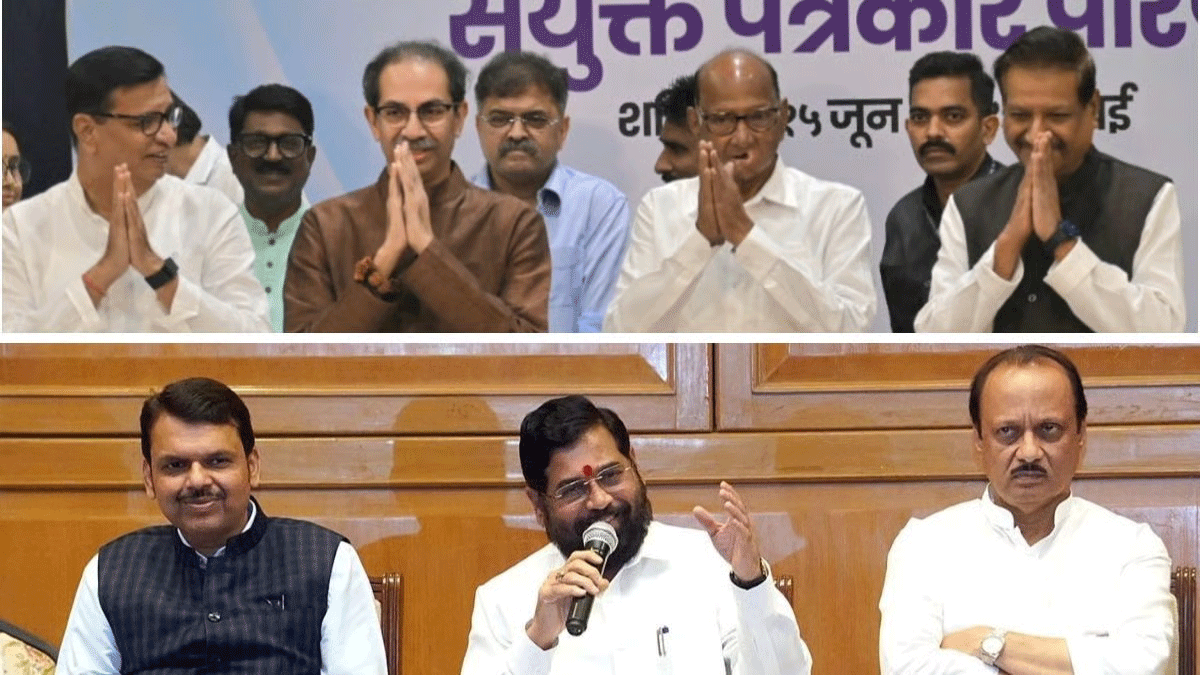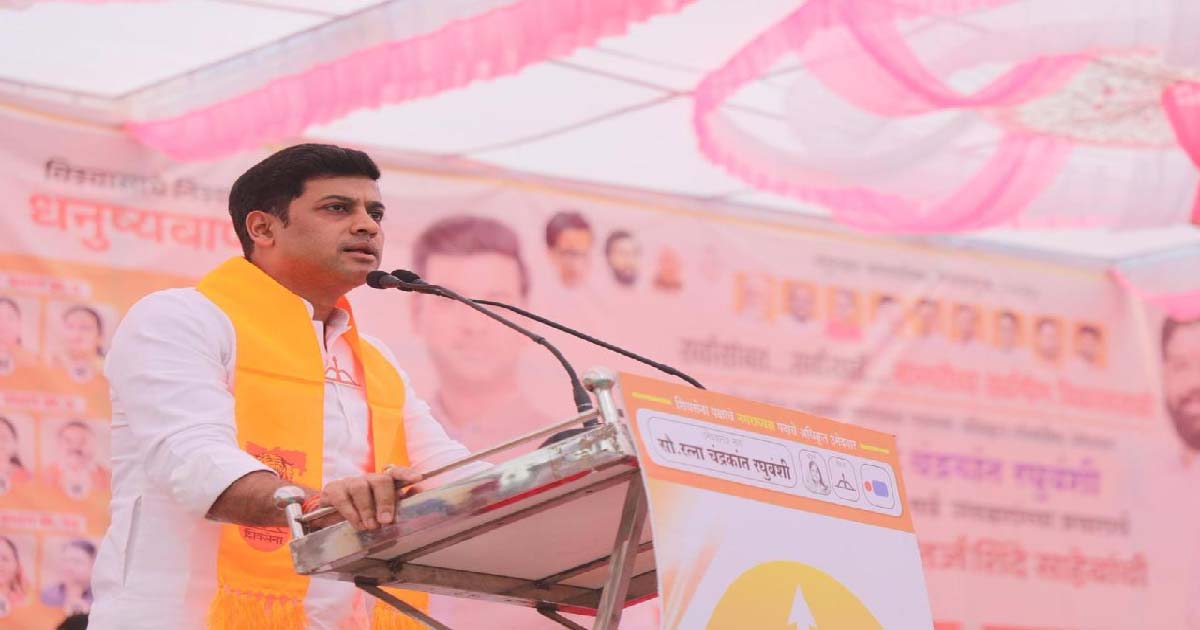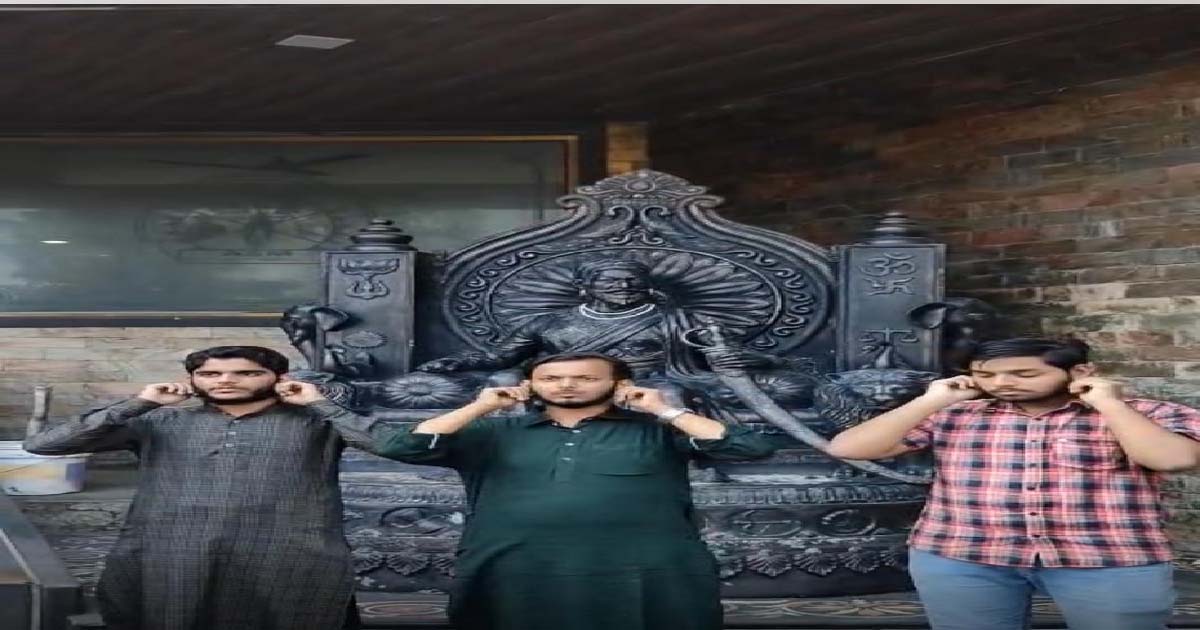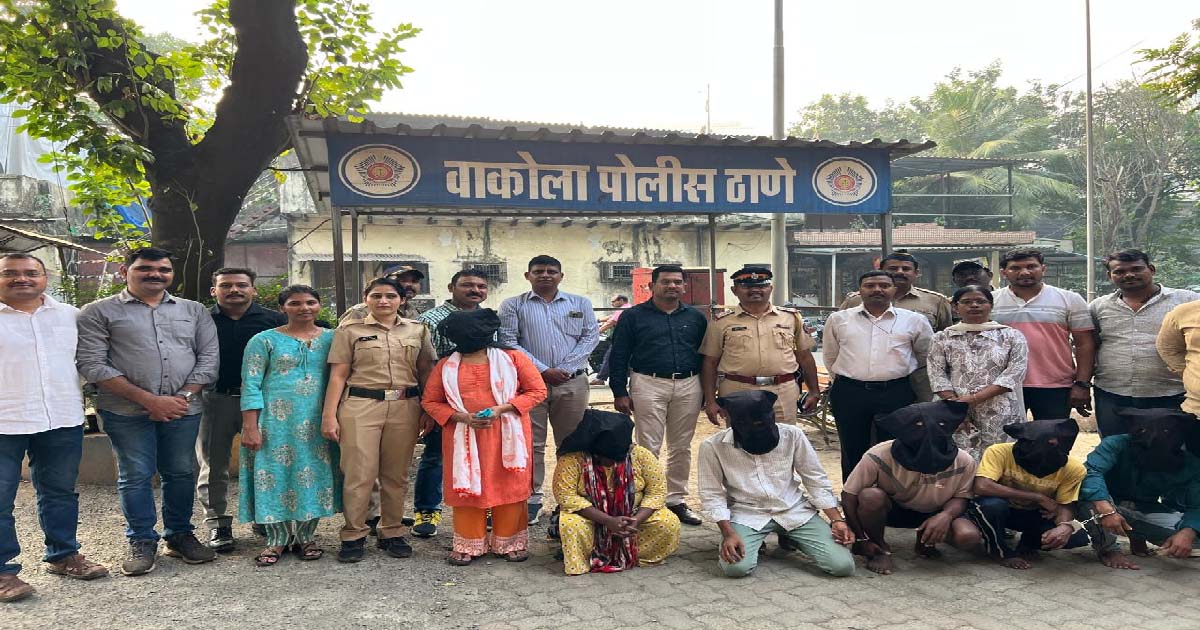Maharashtra
Maharashtra Assembly Elections 2024: Scramble For Seats In Both Alliances; All Partners Eyeing 100+ Seats

Mumbai: Preparations for the state assembly polls are going none too smoothly, neither for the ruling Mahayuti nor for the Maha Vikas Aghadi. In both cases, alliance partners are seeking to contest close to 100 seats or more.
On Thursday, the mood in the Chief Minister Eknath Shinde-led Shiv Sena was that the party should contest 110 seats. In a meeting at Shinde’s official residence Varsha, where ministers, MPs, MLAs and senior leaders were present, it was announced that party observers had been appointed for the purpose. According to sources, Shinde directed his party members to start preparations for 100 assembly seats. Along with observers, the party will also appoint an in-charge for every assembly seat it wants to contest.
This is in tune with a demand raised at the party’s anniversary day function, where former minister Ramdas Kadam demanded 100 seats in the presence of CM Shinde. The party’s resolve is likely to evoke strong reactions in the Mahayuti as the Ajit Pawar-led NCP is also keen on contesting 85 to 100 seats in the upcoming elections.
Ajit Camp To Contest On 100 Seats
Dharmarao Atram, a senior cabinet member, said the Ajit Pawar-led NCP was keen to contest 100 seats and had started working on it. When a similar demand had been raised by NCP minister Chhagan Bhujbal some time ago, it had raised hackles. With Shinde and Pawar both vying for such a big share, the situation appears grim as the BJP will have to reserve its right to contest the maximum number of seats, say Mahayuti sources.
Meanwhile, Shinde has directed his party leaders to spread the word about the state government’s schemes in every home. He has also directed the induction of new members in the party and their enrolment before the election.
Party leaders must also ensure that no clashes take place with any Mahayuti leader, warned Shinde, cautioning that there were likely to be a few seat exchanges among the alliance partners. This message caused unhappiness, as it evoked the runup to the recent Lok Sabha polls, where the party had to change faces in some constituencies.
Apart from this, Shinde said sitting MLAs would be given first preference for tickets. A coordination committee of the Mahayuti would be set up to resolve disputes were they to arise during the elections.
On the other hand, reports from the BJP said two central observers – Union Ministers Bhupender Yadav and Ashwini Vaishnaw – had a meeting with senior leaders to discuss poll-related issues.
Yadav, who is the Union Minister of Environment, Forest and Climate Change, and Vaishnaw, who is the Union Railway Minister, are the in-charge and co-incharge of the party in Maharashtra, respectively. Members of the core committee of the state BJP, including Deputy Chief Minister Devendra Fadnavis, and the party’s state unit chief Chandrashekhar Bawankule, were present, party sources said.
The meeting assumes significance in view of a report that appeared in the RSSlinked publication ‘Vivek’ that blamed the BJP’s decision to forge an alliance with Ajit Pawar-led NCP for the party’s bad performance in the Lok Sabha elections.
100-Plus Race Within MVA Partners Too
MVA partners too firm on big share UBT Shiv Sena chief Uddhav Thackeray, in a meeting with his party leaders, discussed contesting 100-plus seats, of which 25 would be in Mumbai. The city and suburban district has 36 assembly constituencies, of which 14 were won by the Shiv Sena last time. Only eight MLAs from Mumbai are currently with Thackeray, with the rest of them having crossed over to the Shinde-led Shiv Sena.
NCP Sharad Chandra Pawar too is keen to contest close to 100 seats. With a major chunk being demanded by state level players, it will be interesting to see how many seats the BJP and Congress – both national parties, are going to contest.
Maharashtra
Shiv Sena wave in North Maharashtra, Dr. Shrikant Shinde takes charge of election campaign

Mumbai Nandurbar: Shiv Sena is on a wave in North Maharashtra. A large number of “Ladli Bheenas” and youth are participating in the rallies of Shiv Sena youth leader Dr. Shrikant Shinde. Dr. Shinde launched his election campaign in North Maharashtra today. Addressing the gathering, he said that the Mahayoti government has taken strong steps to empower women and youth, which is why Maharashtra’s Ladli Behna Yojana is becoming self-reliant. Attacking the opposition, he said that many opposition leaders were opposing the “Ladli Behna Yojana” but under the leadership of Deputy Chief Minister Eknath Shinde, this scheme was implemented and it will not be stopped under any circumstances. The opposition is only spreading confusion, Ladli Behna will respond with their votes. Dr. Shrikant Shinde explained that in the last three years, Shiv Sena has reached every corner of Maharashtra under the leadership of Eknath Shinde. Shinde Sahib is empowering his workers by holding eight meetings every day. He has an Urban Development Department, which has resulted in record-breaking funding for the backward villages of Maharashtra, paving the way for strong rural development.
Dr. Shrikant Shinde criticized UBT and said that some people are experts in criticizing, but they have never done any concrete work for the people. That is why today Mahayoti candidates are seen everywhere. The people are well aware of the state of the opposition.
Maharashtra
Kalyan College Namaz Controversy: SIO Demands Action Against Perpetrators

Mumbai: SIO has demanded strict action against the hooliganism of Bajrang Dal and Vishwa Hindu Parishad on offering prayers in Mumbai’s Kalyan College. Here, State Secretary SIO Aziz Ahmed said that
The incident that took place at Ideal College of Pharmacy and Research in Kalyan is highly condemnable and unacceptable, where hooligans belonging to Bajrang Dal entered the college campus, threatened and harassed Muslim students for offering prayers and even tried to make them sit in front of the statue of Chhatrapati Shivaji Maharaj. This incident is a direct attack on religious freedom and the sanctity of the educational campus.
SIO strongly condemns this incident and expresses complete solidarity with the affected students. We demand that strict action be taken against the accused at the earliest, the college administration ensure the safety of the students and take concrete steps to prevent such incidents in the future.
We appeal to the entire student community to maintain religious harmony and remain united against such sectarian attitudes and demonstrate strong solidarity.
Maharashtra
Five-year-old kidnapped girl rescued from Vakola, five arrested, girl held hostage by uncle in Panol

Mumbai: Police has claimed to have arrested five accused, including uncle Momani, on charges of kidnapping a five-year-old girl. The gang had planned to kidnap and sell the girl. A case of kidnapping of a minor girl was registered on November 22 under the limits of Vakola police station. Several teams were formed in Zones 8 and 7. During the investigation, it was revealed that a suspicious rickshaw had gone to Panvel and returned. A man, a woman, a rickshaw driver and the girl were in the rickshaw between 2 and 3 am. The kidnappers were identified as the girl’s uncle Lawrence Niconelis Fernandes, 42, and his wife Momani, who is a Mangal degree, both of them had gone to Panvel by rickshaw and were going to sell the kidnapped girl. The kidnapped girl was recovered from the possession of their acquaintance Sans. The Sans gave details about the wanted accused during the investigation, after which Windra Dinesh Chavan, 60, and Anjali Ajit Korgaokar, 57, were arrested from New Panvel, Raigad. The kidnapped girl was sold for Rs 1,80,000 and Vrinda Chavan was taken into custody from her house and the girl was safely brought to Vakola. This operation was carried out by DCP Manish Kalwaniya on the instructions of Mumbai Police Commissioner Deven Bharti and the girl was recovered safely. In this case, the police have arrested rickshaw driver Latif Abdul Majeed Sheikh, 52, a resident of Santa Cruz, Lawrence Nicholas Fernandes, 42, a laborer from Raigarh, Mangal Dagra Jadhav, 38, from Raigarh, Kiran Maruti Sons, 38, from Panvel, Vrinda Vanish Chavan, 60, from Raigarh and the investigation is underway.
-

 Crime3 years ago
Crime3 years agoClass 10 student jumps to death in Jaipur
-

 Maharashtra1 year ago
Maharashtra1 year agoMumbai Local Train Update: Central Railway’s New Timetable Comes Into Effect; Check Full List Of Revised Timings & Stations
-

 Maharashtra1 year ago
Maharashtra1 year agoMumbai To Go Toll-Free Tonight! Maharashtra Govt Announces Complete Toll Waiver For Light Motor Vehicles At All 5 Entry Points Of City
-

 Maharashtra1 year ago
Maharashtra1 year agoFalse photo of Imtiaz Jaleel’s rally, exposing the fooling conspiracy
-

 National News1 year ago
National News1 year agoMinistry of Railways rolls out Special Drive 4.0 with focus on digitisation, cleanliness, inclusiveness and grievance redressal
-

 Maharashtra1 year ago
Maharashtra1 year agoMaharashtra Elections 2024: Mumbai Metro & BEST Services Extended Till Midnight On Voting Day
-

 National News1 year ago
National News1 year agoJ&K: 4 Jawans Killed, 28 Injured After Bus Carrying BSF Personnel For Poll Duty Falls Into Gorge In Budgam; Terrifying Visuals Surface
-

 Crime1 year ago
Crime1 year agoBaba Siddique Murder: Mumbai Police Unable To Get Lawrence Bishnoi Custody Due To Home Ministry Order, Says Report




















